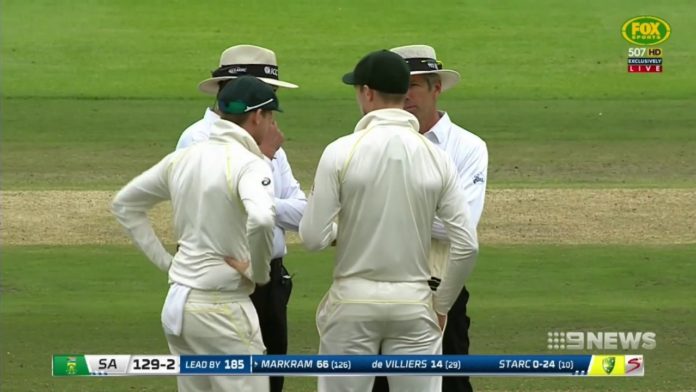 Cricket.
Cricket.
Yes.
Or more specifically, Test Cricket.
Let’s introduce the two openers before we settle down to bat. First up, your author’s cricket skills and playing experience are so extremely limited that it is not possible to go lower. Negative total career matches isn’t actually a thing we are reliably informed. In fact your author’s eye/hand/cricket ball co-ordination is so lacking in personal confidence that a phobia of being forced to catch a wayward six while spectating does exist. Also snakes, 2005 era Bindi Irwin and handling plate glass, but mainly skied cricket balls.
The second point is your author loves test cricket.
Now people who fail to understand Test Cricket normally complain that nothing happens and either completely dismiss the entire sporting family or gravitate towards T20 under the personal view that the short form of the game is kinetic and exciting. Test cricket is boring.
Paradoxically, as a Test Cricket fan it is easy to find T20 boring for largely the same reason. The restricted number of total overs, designed to produce a quick stroke playing game that produces results also produces games that are effectively interchangeable. The batsman swings and the ball goes arcing off towards the boundary or straight into off stump.
Repeat nine more times. Change innings. Repeat for other side and there we go, effectively ever single T20 game ever. ‘Tis, let’s be honest, rather boring and if T20 was really the exciting game people claim it to be then they wouldn’t need all the fireworks, music, flashing lights and dancers to help maintain the spectator’s attention.
Test Cricket is of course different. It is longer. Over eleven times longer in overs bowled alone. The sheer length of a match results in a steady and occasionally unpredictable evolution of the game as it progresses, not just in the players, who, with a few exceptions, are expected to last the entire match without replacement, or the pitch, which can break up to the extent of being almost unrecognisable over the course of the fifteen playing sessions or even just in the ball.
(Yes the ball. Foreshadowing there. We’ll be getting back to that a bit later.)
A Test also evolves drastically as a narrative and this is then made doubly so by the fact that Tests are rarely played in isolation but as part of a multiple match series, giving fans an extended month that can see careers created, enhanced or destroyed utterly. The narrative of a Test Series will roll forward like a well crafted movie trilogy where the rights don’t belong to Disney. Villains are cast at the start only to be exposed as total red herrings. Plots hatch, unfold and are sidelined as the narrative moves onto a different character, and injuries force unexpected recasting of the stars.
Personally? It’s totally awesome to follow, and much easily amused mirth can be gathered mid way through a series by skipping back into the recent archives to see just how much the world’s various cricketing commentators managed to get wrong.
Let us take as our working example the currently ongoing series of Australia in South Africa. Evolution before us. We started with Australia managing to win the first test relatively comfortably. Australian cricket puffed it’s collective chests out and told themselves all was well under the Baggy Green and that everyone else could just take their correct place in the pecking order of Not-Best In the World. This was the Australian Cricket team, they played tough, they played hard, they played fair and they never crossed the line. Australia, then one up in the series and timing the ball nicely, kept up the narrative that sledging was a completely normal part of the game, with the tone that it was perfectly acceptable to go after the opposing players both before and during a series. This was Australia. Tough. Hard. Fair.
Head-butting the Line.
Now at this stage your author was planning to jump on the bandwagon and hack out a lazy thousand words on the topic, and to be quite frank was going to come down supporting the practice. While admitting to a zero amount of cricket skills and experience, your author has played several decades of competitive full contact team sport and wishes to remind readers of the word ‘competitive’ in the title.
Compete. Win. Prove the skills of you and your team. Exercise the natural desire as a mammal to establish superiority over one’s peers. To go full cliche, when you step onto the field you are out there to win, not to play nice and give everyone a warm fuzzy. The act of playing sport often gives rise to the belief that the same act is also ‘sporting’, with ‘sporting’ being short hand for ‘fair’.
Ummm, no. Sport has rules, but mainly for two reasons. The first is to clearly define exactly what skills and abilities are currently being contested and how a winner and loser will be judged, and the second is to ensure players don’t try and kill each other. You are out there to prove you are a better player then the other team and if you can prove he or she is a mental weakling who is easily distracted from their game then more credit you. Of course in most full contact sports the verbal sledge is somewhat harder to pull off. Verbal wit whilst wearing a mouth guard is never as easy as it looks in the movies, and verbal wit also needs to be carefully applied if your sport of choice also provides the opposing player with the means, method and motivation to physically flatten you. I’m sorry, did you say something? I couldn’t hear, what with all that mud and grass in your mouth.
Self regulation can be a wonderful thing.
The problem with Australian sledging on the cricket field is that many in the Test team seemed to utterly struggle once ‘The Line’ was crossed. For a case point from the archives we direct readers to Glen McGrath vs Ramanaresh Sarwan. McGrath posed the suggestion that Sarwan may have used some unconventional methods in order to obtain his Test sport. Line not crossed. Part of the game. Sarwan in return suggested that McGrath’s wife might be a better person to ask. Line crossed. McGrath, to put it mildly, lost his shit. Exactly how much this mental distraction then affected McGrath’s bowling is a bit subjective, but let us just say that this Test was not won by Australia.
More recently it became apparent to various members of the overall South African cricket community that David Warner’s button to push was the one marked with his wife’s social history from a time before the two of them had first met. Now while Warner himself had a reputation of playing hard, tough, fair but never crossing The Line, his button had clearly been pushed and Warner, to put it loosely, was forced to calmly and rationally explain to various South Africans that he found the matter slightly distasteful, and the gentlemanly thing to do for all involved would be to just let the entire matter drop so he could go back to playing hard, tough, fair and never crossing The Line.
This was what your author was going to write about.
Also up for keyboard consideration was the on field activities of South African bowler Kagiso Rabada. Rabada is young, talented and fiery. Also with an unsporting reputation of getting in batsmen’s faces after he had dismissed them. One might even say he bowls hard, tough, fair but never crosses The Line. He may have come into the series with a bag of demerit points and a bad reputation but to his credit, no one was claiming he liked to mention the social habits of anyone’s wife or girlfriend.
Carrying so many demerit points for conduct meant that Rabada had come into the series facing the real possibility of being hit with a ban. South Africa knew it, the media knew it and the Australian team were open about the idea they might target him to see if they could force him over the edge. Deliberately provoking one of the best bowlers in the world to prevent him from playing all games in the series? Hard, tough, fair, but never crossing The Line.
The banning of Rabada became what seemed to be absolute during the Second Test when Rabada, having dismissed Australian captain Smith, made contact with Smith while running down the pitch in celebration.
Originally the charge had been that Rabada had deliberately made contact and Rabada was definitely going to miss some matches. There was a brief attempt by someone to suggest that Smith was equally to blame and had, to steal a phrase from other sports, ‘milked the penalty’, possibly on the grounds while footage of the contact shows that Rabada at least partly attempted to turn sideways to pass, Smith had remained square; but that quickly went nowhere and short summary was that Rabada had his charge reduced on appeal to accidental contact. Still a demerit, as when you are an adult, even if you just dismissed the opposing team’s captain you are still expected to look where you are sodding going.
Where are we going with all this you, the reader, might be wondering?
Simple. We are discussing how Test Cricket, unlike probably any other sport in the world, evolves as a narrative. The above was the carefully constructed story arc coming into the Third Test. South Africa, striking back like a metaphorical Empire, had won the Second Test comfortably and the viewers at home were torn between the potentially critical Third Test, the drama and moral questions involving crossing The Line while sledging and the romantic subplot of AB de Villiers’ powerful return to batting form. Smith had discussed in an interview the implications of Rabada’s hearing using the careful tone that suggested he and the rest of the team considered the ruling total bollocks. Cricket Australia had complained about the conduct of South African spectators. Pat Cummins had forced a significant batting collapse late on day one and David Warner had attempted to T20 Rabada out of the bowling attack, only to look like a right idiot who no longer owned an off stump.
Narrative. Unfolding.
Then came the plot twist.
Remember that ball we foreshadowed earlier?
In the Twitter words of British comedian and Cricket Tragic, Andy Zaltzman, Cameron Bancroft had been caught attempted to feed a corn flake to the hamster in his jockstrap.
Ball tampering.
Not just alleged ball tampering, but ball tampering openly admitted to by Bancroft.
Yup, did not see THAT plot twist coming.
To further completely kick over the entire established story arc, captain Steve Smith then fronted a post stumps press conference to admit that not only had Bancroft attempted to tamper with the ball, but the idea had been discuss and fully endorsed by Smith and the rest of the Leadership Group during the lunch break. Effectively, the Leadership Group had decided, the South Africans were batting Australia out of the match so a little bit of ball tampering to see if they could get reverse swing was a completely sane and rational idea. After all, it MIGHT help to get the ball to reverse and if worst came to worst it was ONLY CHEATING.
Yeah, good call there, Steve. Nice one.
Such is the nature of narrative in Test Cricket that most of this happened while the good men and women of Australia were still in bed. They would have switched off the bedroom lights hoping for another Cummins style breakthrough only to wake up and discover that Bruce Willis had been dead the entire movie.
It moved faster still. Just before your author had started typing this article it had been reported that Malcolm Turnbull (not out 28) was ‘shocked and disappointed’. Prior to this Cricket Australia had gone over to emergency war footing in a mixture of shock, anger and overt disappointment. Prior to typing this paragraph your author discovered that both Smith and vice-captain David Warner would spend the remaining two days [one day] of the test under the leadership of Tim Paine, and by the time you, dear reader, gets to this part of the column on the informative pages of XYZ, many more developments are almost certain to have happened.
One thing is definite; Australian cricket will never been the same again. Smith has managed to spread a stain over the test team that may never go away. As mentioned above sport is not literally meant to be sporting, but what it is meant to be is an indisputable statement of superiority over others. You agree the terms of the challenge and under those agreed terms you either come out indisputably the winner or you spend the off season accepting the knowledge there are better people than you. You then submit or you improve and you challenge again, but always within the terms that both sides have agreed.
Stain those terms and questions will be raised. They will be raised again and they will be raised in retrospective against prior performance. You admitted cheating now, yet have you cheated before? Will you cheat again? If you disrespect the terms of our agreed challenge then what else do you disrespect, and are you even worthy of my company? Australian cricket and Smith now have to live with this and only the future will tell us how this little character arc will end up finishing.
Yet all the while and somewhat counter intuitively, Smith and Bancroft have reinforced the strength of what Test Cricket is to the world. It is an ongoing narrative that surprises and shocks, delights and disappoints. It will move forward and continue to develop because this event is within a Test Match that still has two days to play and then it will continue to move on into the evolving week as this is a Test Series that still requires the fourth test to be played.
Had this been any other sport in any other format the narrative would have been different. Scandals rarely have the time to fully unfold within the time frame of a game in another sporting code. They develop off the field and due to the massive partisan nature of many fans the public opinion normally rapidly breaks down into either forced outrage, rejection or apathy.
Test Cricket stands alone in the world. It may be utterly incomprehensible to many, but to those who peer over the boundary rope and learn to read the moods and deviations of the game it can become utterly compelling. There is a term for the over fan, the Cricket Tragic, but not only because they devoted so much of their time in following the game, but also because like any good classic Greek knows, the best drama is a tragedy.
We’re Your XYZ and we’ll be back with you after the tea interval.










